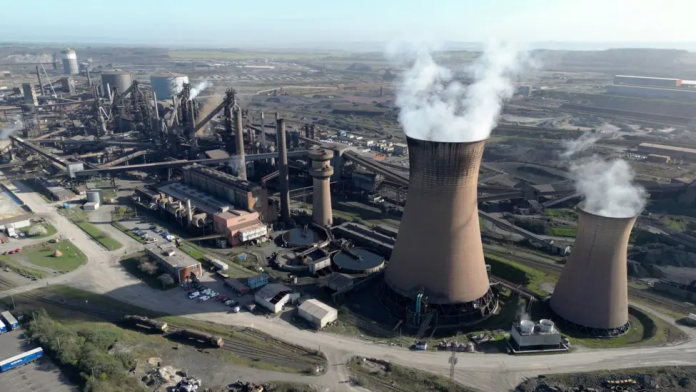The British government refused to rule out temporarily nationalising the Scunthorpe steelworks, the UK’s last remaining plant producing virgin steel from raw materials.
Prime Minister Keir Starmer confirmed “all options are on the table” during a parliamentary committee hearing on 9 April 2025, emphasising the strategic importance of maintaining domestic steel production.
All options are on the table in relation to Scunthorpe.
Imminent crisis at Scunthorpe’s blast furnaces
Operated by British Steel, the Scunthorpe plant faces an urgent shortage of iron ore pellets after its Chinese owner, Jingye Group, halted raw material orders amid stalled negotiations for increased government subsidies. Union officials warn the furnaces could shut permanently by late May unless supplies are secured within days, risking 2,700 jobs and the UK’s ability to produce primary steel, a critical resource for infrastructure and defence sectors.
Jingye, which acquired British Steel in 2020, claims it has invested £1.2 billion to sustain operations but cites “financially unsustainable” challenges, including US-imposed tariffs, rising environmental costs, and competition from cheaper Chinese imports. The government’s £500 million offer to transition the plant to greener electric arc furnaces–which recycle scrap steel–was rejected, deepening the impasse.
The crisis unfolds against a backdrop of escalating US-China trade tensions, with President Donald Trump’s 25% steel tariffs exacerbating pressure on UK producers. Scunthorpe’s blast furnaces, operational since the Industrial Revolution, now symbolise a fraught balance between economic sovereignty and decarbonisation goals.
While most UK steelmakers have shifted to electric arc technology to cut emissions, Scunthorpe remains the sole site producing virgin steel, responsible for 95% of Network Rail’s track supply.
Industry Minister Sarah Jones reiterated the government’s preference for a “commercially-run” solution but acknowledged nationalisation may be unavoidable to prevent “decades of expertise being lost.” Conservative MP Martin Vickers argued temporary state control could stabilise operations and attract private investment, while critics warn of long-term taxpayer liabilities.
Political and global context
The debate has intensified ahead of Lincolnshire’s mayoral election on 1 May, with Reform UK leader Nigel Farage urging immediate nationalisation. Chancellor Rachel Reeves held emergency talks with unions, stressing steel’s “strategic importance” amid fears that closure would leave the UK reliant on imported steel, a vulnerability highlighted by post-Brexit trade uncertainties.
Globally, the UK’s steel output has plummeted from 5th place in 1970 to 0.3% of global production, overshadowed by China’s 54% dominance. Experts argue transitioning to “green steel” via hydrogen or carbon capture could revive the sector, but such projects require years of investment, time Scunthorpe may not have.
With Jingye yet to resume negotiations, the government faces a critical deadline to secure raw materials or intervene.
